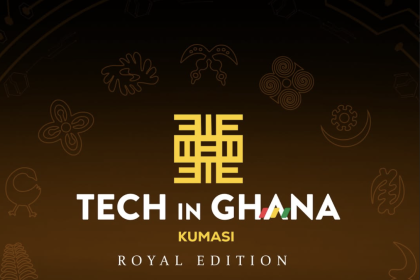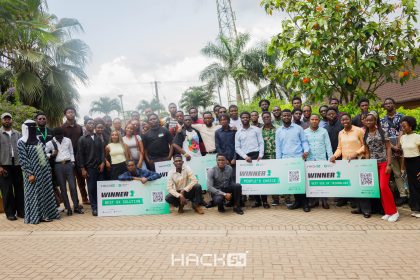Ghana will be going to the polls next year in December 2024. The current administration, the National Patriotic Party (NPP), is preparing to elect a new flag bearer after the current president Nana Akufo Addo steps down next year.
The current favorite to replace him appears to be the current Vice President, Dr. Mahamudu Bawumia. But the Vice President first has to become the flagbearer through the party’s primaries which will take place on November 4th.
But if he does become the NPP flagbearer for the 2024 election, will some of his achievements from his digital efforts in government help propel him to become president? Or will current economic issues faced by the current administration drag him down?
Background
Dr. Bawumia has a career as an economist, academic, and banker. He worked as a lecturer at the Emile Woolf College of Accountancy in London and at the Department of Economics at Simon Fraser University. He also served as an economist at the International Monetary Fund (IMF) from 1996 to 2000, where he was involved in various missions to countries such as Indonesia, Thailand, the Philippines, Zimbabwe, and Sierra Leone.

In 2001, he returned to Ghana and joined the Bank of Ghana as a Deputy Governor. He was responsible for overseeing monetary policy, banking supervision, financial stability, research, and statistics. He played a key role in the introduction of the redenomination of the Ghanaian cedi in 2007.
Journey Into Politics
Dr. Bawumia entered politics in 2008 when he was selected as the running mate of Nana Akufo-Addo, the presidential candidate of the NPP. The party lost the general election to the NDC party in thee 2008 general elections.
The NPP contested again in 2012 but lost the general election. However, they contested the results at the Supreme Court but their petition was ultimately declared null and void.
In 2016, the NPP ran again with Bawumia as the Vice Presidential candidate. They won in a landslide victory and Dr. Bawumia was sworn in as the Vice President of Ghana on January 7, 2017.
Digitisation Projects
As Vice President, Dr. Bawumia has pushed for the digitisation of government services as he believed that digistation was essential for the growth of Ghana.
One of the first and most notable digital projects initiated was the Digital Address System. The system assigns a unique digital code to every property and location in Ghana. The system was launched on October 18, 2017.
Most citizens have soured on the current government because of issues including high inflation which is above 40%, the recent tax hikes including the increase of VAT to 15%, the aggressiveness of the GRA to collect taxes, especially in a down economy, and the alleged corruption cases.
Bawumia also pushed the Ghana Card/National Identification System (NIS) project which was to provide a unique biometric identity card to every Ghanaian citizen and resident. Issuance of the Ghana Cards began in September 2017.
In 2020, the Vice president announced the Universal QR Code (UQC), which would enable local merchants to accept payments from customers by using their cameras to scan a QR code to process payments.
In 2021, he announced the Ghana.Gov platform, an online platform that allows citizens to access various government services online as well as make payments online.
Other projects he propelled include the E-Pharmacy platform as well as the paperless e-port project at the ports in Tema.
But with all these systems in place, has it actually made an impact?
Controversies, Broken Promises, and Party Politics
Dr. Bawumia and the Akuffo administration have not been without challenges in their quest to digitize Ghana.
The Vice President’s mission for a cashless and digital economy has been swayed because of the recent economic issues and the controversial passage of the E-Levy bill which takes a tax on the movement of mobile money.
There have been some promises Dr Bawumia made in the public sphere which haven’t come to fruition. He stated that PayPal, in the second half of 2019, would be available for Ghanaian merchants to receive payments for their goods sold online.
That however never materialised and the Vice President hasn’t spoken or given updates on the situation.
The Digital Address System, which launched to much fanfare, hasn’t been as widely adopted by citizens according to a report. The Vice President also announced that they had been working with Google to integrate the system into Google Maps. But again, that didn’t materialise and currently, Google uses its own 6-digit addressing code for its mapping application.
In 2021, Ghanaians were notified that they would have to re-register their SIM cards using their Ghana Cards. However, issues facing the National Identification Authority (NIA) and the printing of Ghana Cards pushed the deadline back multiple times.
The Vice President’s mission for a cashless and digital economy has also beenn disrupted due to recent economic issues and the controversial passage of the E-Levy bill which places a tax of 1% on the movement of mobile money transactions above 100 GHC. The VP has not spoken directly about the issue even though he has been on record in 2020 stating that the taxing of mobile money was a “bad idea”.
The Universal QR Code has had a slow adoption as most users still prefer mobile money payments or cash when making payments at local outlets.
But even without focusing on the tech and digital angle, the vice president still has to deal with internal party politics and the current state of Ghana’s economy.
Most citizens have soured on the current administration because of issues including high inflation which is currently at 40%, from its high of 54%, the recent tax hikes including the increase of VAT to 15%, and the aggressiveness of the GRA to collect taxes, especially in a down economy.
Dr Bawumia running for president of the same party which is struggling to keep the economy afloat does not bode well for him in the next elections especially if he was to be nominated as the NPP candidate.
What Happens Next
The NPP’s primary is scheduled for November 4th. Dr.
Bawumia is the favorite to win after winning the majority of votes in the NPP super delegate race. But will he be able to win the national elections if elected?
The current administration has had issues including the IMF bailout, a tough economy, and some digitisation projects which are currently facing challenges. If he wins, he will be facing the rival party candidate and former president John Mahama, and an independent candidate of Alex Kyeremantan, who announced his resignation from the NPP party to run for president.
It will be an uphill climb for sure and his digital accomplishments might not be enough especially due to the economy and internal politics.
We’ll see what happens on November 4th and see if he can get past the first hurdle.
Catch up on news and other tidbits on our WhatsApp Community Page, Twitter/X, and subscribe to our weekly newsletter to ensure you don’t miss out on any news.
Support Tech Labari
Tech Labari currently relies on bootstrapping, ads, and sponsored content to publish news stories and articles to our thousands of readers in Africa and the world.
Financial contributions from our readers are a critical part of supporting our resource-intensive work and help us keep our site free for all.
Any contribution to Tech Labari would help to keep the site running










